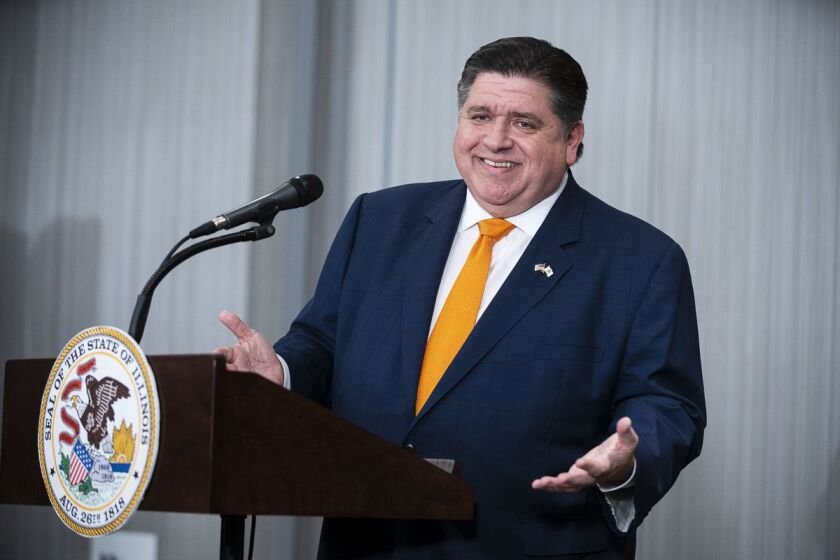The United States is facing an ongoing crisis at its southern border, with thousands of asylum seekers and migrants arriving in search of safety and opportunity. In response to this situation, Illinois Governor J.B. Pritzker has announced plans to request additional funding from the state legislature to support these individuals.
Governor Pritzker’s proposal comes as part of a broader commitment with Cook County, where Chicago is located, to allocate $250 million towards addressing the needs of asylum seekers and migrants. Of this amount, the governor intends to ask for $182 million from the state budget for the fiscal year starting July 1.
In a statement released by state and county officials, Governor Pritzker emphasized the urgency of the situation, stating that “with thousands of asylum seekers continuing to come to Chicago in desperate need of support and with Congress continuing to refuse to act—it is clear the state, county, and city will have to do more to keep people safe.”
The proposed funding is intended to provide essential services and support to asylum seekers and migrants who have arrived in Illinois from the southern border. This includes funding for shelter, food, healthcare, relocation assistance, and other critical services.
Since August 2022, Illinois has already spent over half a billion dollars on supporting asylum seekers and migrants who have arrived in the state. This funding has been used to provide a range of services to more than 35,000 individuals who have sought refuge in Chicago and surrounding areas over the past year and a half.
Cook County has also made significant financial commitments to support migrants, allocating more than $100 million in its current fiscal 2024 budget, primarily for healthcare services. As part of the joint funding plan with the state, Cook County Board President Toni Preckwinkle has indicated a willingness to commit an additional $70 million towards supporting asylum seekers and migrants.
The proposed funding reflects the ongoing humanitarian crisis at the southern border and the need for immediate action to address the needs of vulnerable individuals and families seeking refuge in the United States. Despite the challenges posed by the influx of migrants, Governor Pritzker and Cook County officials are committed to providing support and assistance to those in need.
It is important to note that the proposed funding is not just a matter of humanitarian assistance, but also a recognition of the significant economic and social contributions that immigrants make to communities across the country. By investing in the well-being of asylum seekers and migrants, Illinois is not only fulfilling its moral obligation to protect vulnerable populations but also supporting the long-term prosperity and vitality of the state.
While the exact details of how the funding will be allocated have yet to be finalized, it is clear that Governor Pritzker and Cook County officials are taking proactive steps to address the challenges posed by the influx of asylum seekers and migrants. This includes providing essential services, expanding access to healthcare, and ensuring that individuals and families have the support they need to rebuild their lives and contribute to their communities.
In the face of ongoing political debates and policy challenges surrounding immigration at the national level, state and local governments like Illinois and Cook County are stepping up to fill the gap and provide leadership on this critical issue. By working together and committing resources to support asylum seekers and migrants, these jurisdictions are demonstrating compassion, resilience, and a commitment to upholding the values of dignity, equality, and justice for all.
